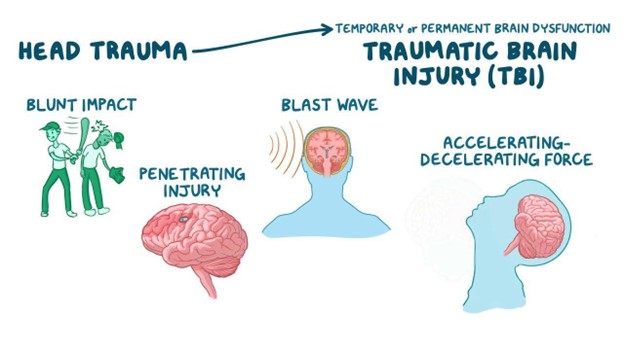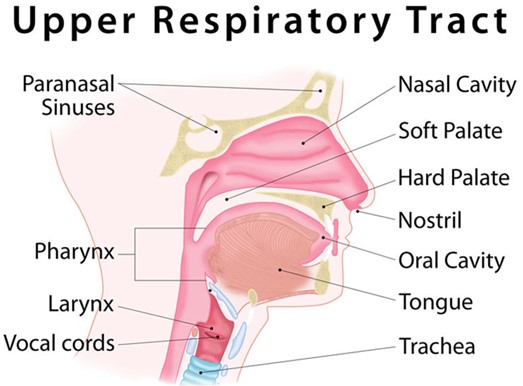A nurse is assessing a client who has suffered a traumatic brain injury. When the nurse applies a stimuli to the client, which of the following responses by the client indicates that the client has suffered an extensive cervical spine injury?
Nystagmus
Decorticate positioning
Lack of any response
Decerebrate positioning
The Correct Answer is D
Choice A Reason: This is incorrect because nystagmus is not a response to stimuli, but a condition that causes involuntary eye movements. Nystagmus can be caused by various factors, such as inner ear disorders, brain lesions, or drug toxicity, but not necessarily by cervical spine injury.
Choice B Reason: This is incorrect because decorticate positioning is a response to stimuli that indicates damage to the cerebral cortex or the corticospinal tract. Decorticate positioning is characterized by flexion of the arms and extension of the legs. It does not indicate cervical spine injury, which affects the spinal cord below the brainstem.
Choice C Reason: This is incorrect because lack of any response to stimuli can indicate various levels of brain damage or coma, but not specifically cervical spine injury. Lack of any response can also be influenced by other factors, such as sedation, hypothermia, or shock.
Choice D Reason: This is correct because decerebrate positioning is a response to stimuli that indicates damage to the brainstem or the upper cervical spine. Decerebrate positioning is characterized by extension and outward rotation of the arms and legs. It indicates a severe and life-threatening injury that can impair vital functions, such as breathing and blood pressure.

Nursing Test Bank
Naxlex Comprehensive Predictor Exams
Related Questions
Correct Answer is C
Explanation
Choice A reason: This is incorrect because education about mastoidectomy is not relevant for a client with an upper respiratory infection. Mastoidectomy is a surgical procedure that removes part or all of the mastoid bone behind the ear, which can become infected or inflamed due to chronic or recurrent middle ear infections. The nurse should assess
the client's ear for signs of mastoiditis, such as swelling, tenderness, or redness behind the ear, but mastoidectomy is not a common or first-line treatment for upper respiratory infection.
Choice B reason: This is incorrect because a referral for a hearing test is not necessary for a client with an upper respiratory infection. Hearing test is a diagnostic tool that measures how well a person can hear different sounds at different frequencies and intensities. The nurse should ask the client about any changes in hearing or tinnitus, which are possible complications of upper respiratory infection, but a hearing test is not a routine or urgent intervention for this condition.
Choice C reason: This is correct because education on the administration of oral antibiotics can help treat an upper respiratory infection. Antibiotics are drugs that kill or inhibit bacteria that cause infections. Upper respiratory infections can be caused by various pathogens, such as viruses, bacteria, or fungi, but bacterial infections are more likely to cause fever, otalgia, or purulent nasal drainage. The nurse should instruct the client on how to take antibiotics as prescribed, such as dosage, frequency, duration, side effects, and interactions.
Choice D reason: This is incorrect because a prescription for an antifungal cream is not appropriate for a client with an upper respiratory infection. Antifungal cream is a topical medication that kills or inhibits fungi that cause skin infections. Upper respiratory infection is not a skin infection, but an infection of the nose, throat, or sinuses. Antifungal cream has no effect on upper respiratory infection and may cause adverse effects or resistance.

Correct Answer is ["2600"]
Explanation
The total fluid prescribed is 5,200 mL over 24 hours. We need to calculate how much fluid the client will receive in the first 8 hours.
Step-by-Step Calculation:
Step 1: Determine how much fluid is given in the first 8 hours. The rule is that half of the total fluid is administered in the first 8 hours.
- Total fluid = 5,200 mL.
- Fluid for the first 8 hours = Total fluid ÷ 2.
Write it out:
5,200 ÷ 2 = 2,600.
Result: 2,600 mL.
Whether you are a student looking to ace your exams or a practicing nurse seeking to enhance your expertise , our nursing education contents will empower you with the confidence and competence to make a difference in the lives of patients and become a respected leader in the healthcare field.
Visit Naxlex, invest in your future and unlock endless possibilities with our unparalleled nursing education contents today
Report Wrong Answer on the Current Question
Do you disagree with the answer? If yes, what is your expected answer? Explain.
Kindly be descriptive with the issue you are facing.
